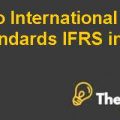In July 2004, JP Morgan Partners (JPMP), the private equity arm JPMorgan Chase & Co, was in the midst of the final terms of the development of public-private buyout offer AMC Entertainment Inc (AMCE), a publicly traded company theater.
This Darden study. "Hide
by Susan Chaplinsky, Vikram Patras, Stephen Oppenheimer Source: Darden School of Business 26 pages. Publication Date: July 17, 2006. Prod. #: UV0473-PDF-ENG
BUYOUT OF AMC ENTERTAINMENT
INTRODUCTION
J. P. Morgan Partners (JPMP) a private equity firm is finalizing terms of a public to private buy-out of AMC Entertainment Inc. (AMCE); one of the largest cinema operator in the United States. AMCE originated from a single cinema in Kansas City, Missouri started in 1920 by Edward Durwood. By the end of ninetieth century AMCE had grown to a network of cinemas all over the US. AMCE was the first to come up with megaplex concept introducing premium quality experience for moviegoers in 1995.
Start of Twentieth century was a turbulent time for the cinema industry because of September 11, 2001 events however industry managed to recover by 2003 and AMCE saw highest number of sales in history in 2004. However AMEC had an issue of uncommon stock that accounted for 52% of shares on diluted basis. This made acquisition attempts difficult for the company, necessary for growth and to secure additional revenue streams. Management wanted to simplify the capital structure by recapitalizing the company and is not averse to a buyout.
Sean Penmeyer, a principal at JPMP needs to know the price to offer for the deal to conclude. Some of the preferred stock is held by Apollo; another private equity firm. JPMP wants to team up with Apollo for the deal therefore price needs to be just right, too high and risk is that Apollo would simply sell its stake without participating in re-investment in new shares; two low and it might block the deal. In addition JPMP has a target return on investment of 20% to 25% and pricing should be adequate enough to meet this target.
In the analysis, this essay would look into Leveraged buyout (LBO) industry, and change in its environment from late 1980s to current outlook. Impact of these changes on LBO investor returns; potential strengths and weaknesses of cinema industry from LBO prospective; whether or not AMCE conforms to an ideal LBO target; value creation opportunities of the deal; risk factors of the deal and finally adequate offer price for the deal.
ANALYSIS OF THE DEAL
JPMP had invested in the industry that AMCE operates in and initial assessment indicated that it was an attractive buyout candidate. Company operated a set of theatres that were larger in size, efficient in operation with premium premises quality. AMCE’s management team was viewed as one of the best in the industry and JPMP preferred to hold businesses with well reputed management teams. Company’s operations were well run and there was continuous innovation to create new opportunities. However there were several issues that JPMP needed to consider before finalizing the deal.
The Buyout of AMC Entertainment Case Solution
LEVERAGED BUYOUT INDUSTRY
Leveraged buyout (LBO) industry grew in 1980s by introducing a strategy of offering managerial incentives through equity participation hence better aligning management and shareholder interests and secondly creating high debt service requirement to bring in more discipline in decision making.
Industry had moved to lower leverage ratios with lower senior debt. However market for high yield debt, mezzanine debt and equity had increase as evidenced below:
Trend Current Historic
Senior debt (priority) ¯ 33% 56%
High yield debt (non-investment grade) 27% 19%
Mezzanine debt (preferred equity) 9% 5%
Equity 32% 18%
JPMP is an experienced operator with $15 billion of assets under management with experience of large transactions such as AMCE transaction. It normally invests $100 million to around $300 million of equity per investment
US CINEMA INDUSTRY
Regal Cinemas was the market leader. In 2003 total industry receipts were $9.49 billion with 1.57 billion admissions at $6.21 per ticket. Most of the ticket revenues go to studios and distributors with cinemas keeping 10% for opening weekend and 20% for subsequent weeks.
This is just a sample partial case solution. Please place the order on the website to order your own originally done case solution.













